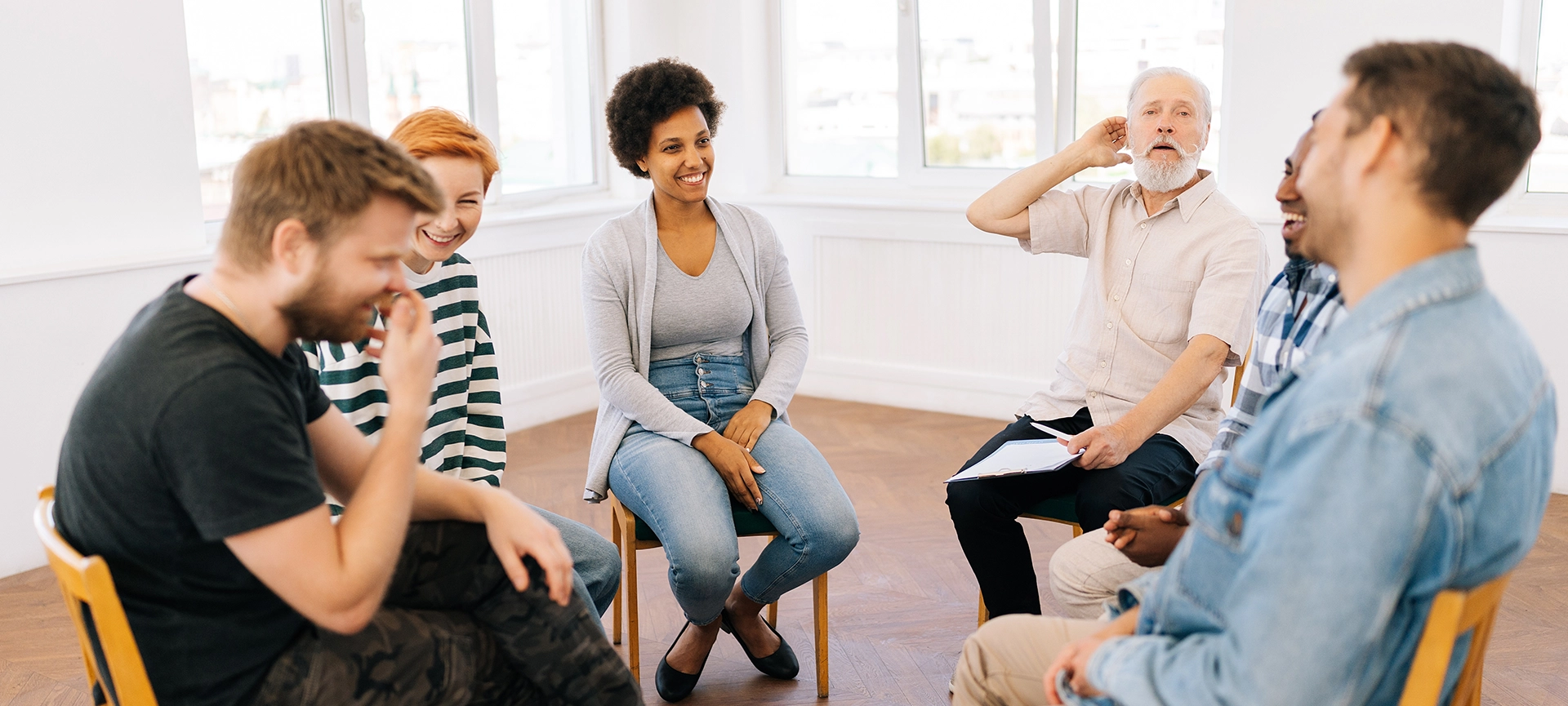It is the time of year when society collectively celebrates the holidays. For many, it is the time of year when excitement builds, events are planned, and people get a break from work and school. For others, this is the time of year when stress increases, anxiety builds, and depression comes knocking. Individuals on their journey of sobriety from their addiction, including those who are fresh on their path, and those who are veterans, no matter where you are on your path, it can be difficult to maintain sobriety over the holidays. It’s important to have the tools to help you stay sober and veer away from the triggers of your or your loved one’s addiction.
Why Can It Be Difficult to Maintain Your Sobriety Over the Holidays?
This time of year is comprised of family events and social gatherings, the holidays being a good reason for making these plans to look forward to having some fun. Social gatherings involve environmental and peer influences outside of your everyday routine which has the potential to trigger your addiction habits whether that be of alcohol or drugs, making it that much harder to stay on the sober path. These events or gatherings most likely will have the presence of alcohol whether it be a family dinner or an office work party, while also the potential presence of drugs or other substances. The setting of social events aside, this time of year leading up to Christmas also has higher levels of mental illness including, anxiety and depression among the population. Mental illness is another gateway to the risk of alcohol or substance use and abuse.
What are Some Potential Triggers to be Aware of?
What are triggers? A trigger or a stressor is something that causes you distress, or for you to become overwhelmed and lead you to react in a certain way. Around the holidays, people feel inclined to cram as much as possible into the short span of time before the new year, to ensure all the family and friends are seen and all the traditions unfold. These “traditions” could be one of your triggers. Traditions can involve a routine around the holidays which was current through the time of your pre-sober self. In this case, if your traditions are associated with addictive habits they could lead you in a direction you do not want to go. Being aware of these traditions and the potential triggers associated with them can allow you to be prepared to avoid risking your sobriety, perhaps creating a new tradition to associate with your sober self.
In the potential scenario of attending a social gathering, there will be many occurrences out of your control. The only thing you will be able to take control of is yourself, so being ready for these potential scenarios can help you strategize and be prepared. Another potential trigger could be anger, arguments, or yelling, everyone has their triggers, and this is a common one among many. An argument can lead to yelling and the yelling can lead to anger. When fighting and arguments occur, the participating parties may have a lot to say in the heat of the moment, whether it is true or not. You could be contributing to this argument, or you could be a bystander, either way, these scenarios can lead to the inclination to want to drink or get high, so best to avoid this position the best you can.
The list of potential triggers or stressors can go on, but here is a few to be aware of”
- A shift in your normal routine
- More exposure to alcohol and substances
- Watching family and peers consuming alcohol or substances
- Returning home to visit family and friends (who may associate with old habits)
- Returning home to a family who leads you to feel negatively
- Feeling lonely, isolated, depressed, anxious
- Financial stress, feeling the pressure of gift giving and taking vacations
- Reminiscing about memories from this time of year in the past (can include the loss of a loved one)
- Shame and regret
- Stress or Fear
- Experiencing a loss of control
- Grief
- Attending a specific place associated with a negative event
- Judgement
Be aware of your potential triggers, and try to steer clear of the circumstances which can trigger you. A good way to avoid these triggering situations can be to try and create new traditions to symbolize moving forward in your sobriety. Traditions not associated with your pre-sober self.

What To Do if You Experience One of These Triggers?
If you are feeling triggered, whether it be by a family member or a peer, remember that you can say “no”. If you are invited to an event and you are worried about the influence the people who will be there have on you, you can say “Thank you for the invite, but I won’t be able to make it”. Though it is not recommended to isolate yourself, if your sobriety will be better protected away from the crowd you were invited to join then this may be a good option for you.
In turn, if you get invited to an event, or any other kind of holiday activity, always remember that you can say “no”.
Saying no is not always the answer. The most important thing to do when you are feeling triggered is to identify exactly what is triggering you and why that might be. Identifying your triggers and knowing how they make you feel physically and emotionally can help you with the identification of the overall reason why they trigger you. When you know your triggers you can set boundaries for yourself, while being able to identify what your limits are. When you know and set your boundaries and you know your limits, you can communicate these effectively with those around you to set yourself up for the best successful night out. Just because you are sober does not mean you should miss out.
How can Stress, Anxiety, and Depression Contribute to Addiction?
Whether you are sober or not, the holidays are one of the most stressful times of the year. Being in tune with your triggers is important, but what is even more important to be aware of is that you are not alone. The stresses that come, and the anxiety and depression that visit through this time of year can be another factor that impedes your sobriety. People all around put so much pressure on themselves to make sure everything gets done, everyone gets seen, and lots of money gets spent to ensure that the holidays are “special”. With this pressure, mental health takes a fall and the emotional results can be overwhelming. For someone sober, the results of mental health slipping through the cracks can be another potential obstacle that impedes maintaining your sobriety. The basic definition of stress is any kind of change that causes physical, emotional, or psychological strain on your well-being. When our bodies experience stress, it is human nature to turn to what comforts us, this can include drugs and alcohol. This is what we want to avoid when experiencing stress.

Ways to Manage the Stress, Anxiety, and Depression that Contribute to Addiction in Toronto, Ontario
In December with all the holiday festivities that occur, this is the time when people are more likely to drink, binge drink, experiment with drugs for potentially the first time, and abuse drugs. Those who have yet to recover from alcohol or substance abuse will also continue to abuse these substances. For those who are sober, and who are working very hard to stay sober this can lead to increased stress and anxiety. Your sobriety is important, which is why we have some tips we want to share with you.
- It is very important to be good to yourself. It is ok to be selfish, especially because your best interest is at heart. Continue on your sobriety journey, continue to go to meetings over the holiday period, seek the help you need from a sober companion, carry on with the support systems you have, and maintain as much of a routine as possible in the time when the routine is less structured.
- Be good to those around you. It’s ok to be selfish, make sure you are looking out for yourself but also know that this does not mean not being present for the people you care about.
- Maintain some of your routines. Eat well, get a good amount of sleep, exercise, and continue going to your meetings as regularly as you normally do, if not more.
- Find a safe environment. If you are going out to different events and activities, make sure they are set in safe environments and places where you feel safe.
- Bring your own drinks. If you are going somewhere where it is expected there will be alcohol, bring your own non-alcoholic drinks so you know you can have something in your hand to sip on.
- Have an escape plan. Having an escape can be in two different perspectives, an escape from a conversation, or an escape from the entire event. For example, to escape the conversation where you may be asked “Why aren’t you drinking tonight?” You can have a prepared response like “I am driving” “I have an early morning” or even the truth. Whatever your response may be, you don’t want to feel like you were caught off guard and feel panicked at the moment.
- Know your triggers. Try to identify your triggers so you know the boundaries you want to set and can identify what has the potential to cause an increase in anxiety levels.
10 Tips for Staying Sober Through December Toronto, Ontario
- Go into the holidays with a plan. How will you arrive at events, what will you bring, perhaps bring a sober companion with you. In addition to having a plan, also make plans to have things to look forward to instead of keeping to yourself. Surround yourself with people and things that you love.
- Be aware of your triggers and try to avoid them. Set your boundaries and be selfish when it comes to sticking with these boundaries to help avoid experiencing your triggers.
- Make new traditions. Another way to help avoid your triggers. These traditions can symbolize your life being sober instead of reinstating old traditions you associate with your addiction.
- Ask for help. Seek Help. If you are struggling with the time of year and feelings that arrive, which urge you to leave your sobriety behind, ask for help. Make the time to prioritize going to meetings, or staying connected with a sober companion.
- Bring your own beverages to events you are attending. This will make it easier to avoid alcohol by already having something in hand.
- Drive to events yourself so you can maintain control over when you arrive and when you leave, especially if you become uncomfortable with the atmosphere you are in.
- One day at a time. Awake during the day, and go to bed at night. Throughout the holidays there are lots of events that occur. Give your efforts throughout the day but when the night comes, know that you can go to bed at a normal time and get the rest you need to conquer the next day.
- During the holidays, there are lots of plans made. Make sure you make the time to plan to do some of your normal routine activities such as exercise, relaxation, and mindfulness, this can help veer away from temptation.
- The best you can, keep your routine over the holidays similar to the rest of the year.
- Remember that you are not alone. Surround yourself with people who support your sobriety such as family, friends, sober companions, and meetings.

At Addiction Rehab Toronto, we are here to help you throughout the holidays or any other time of the year.
…
Call us today, so we can help you
FOR IMMEDIATE HELP – CALL US 1-855-787-2424
Or email us at: help@addictionrehabtoronto.ca







